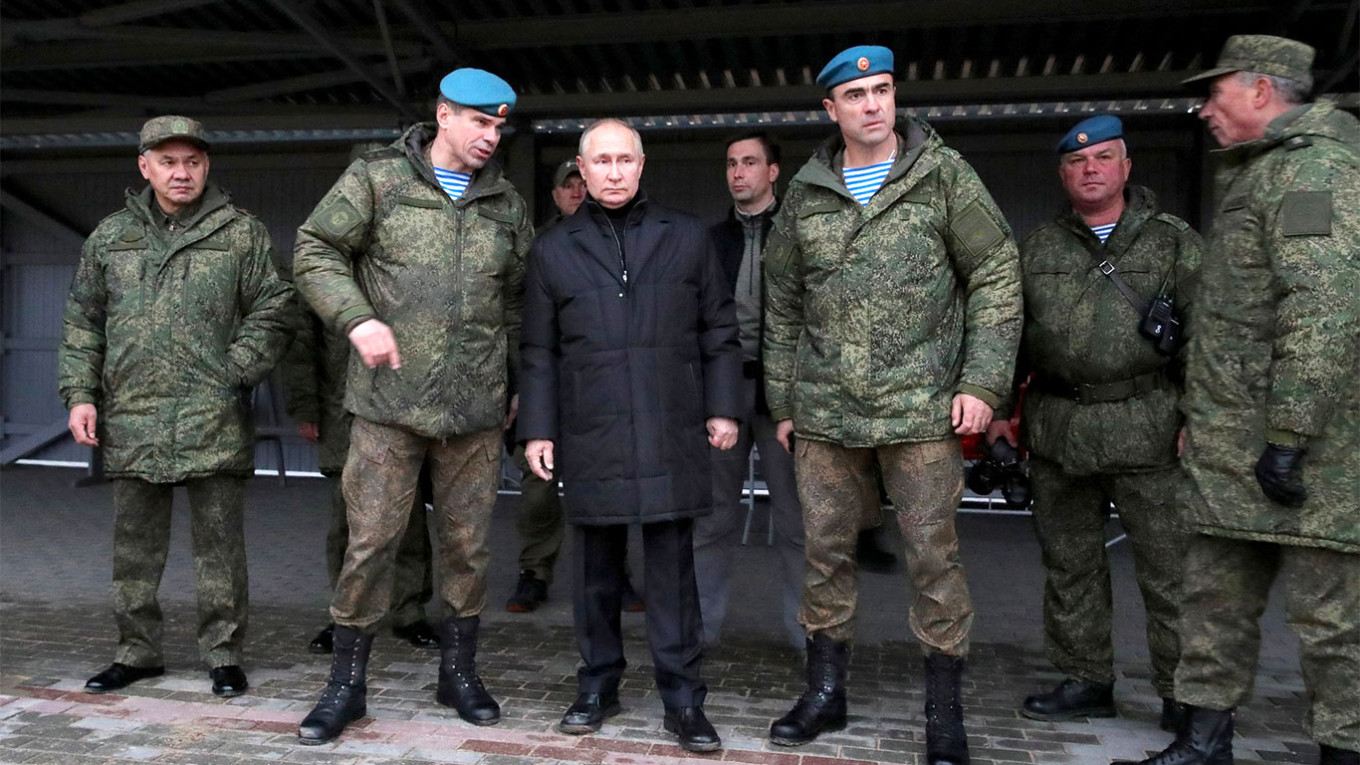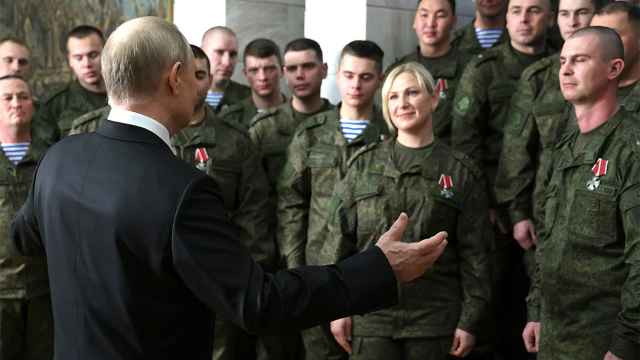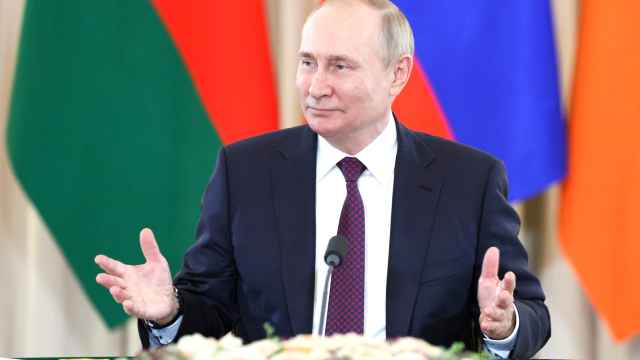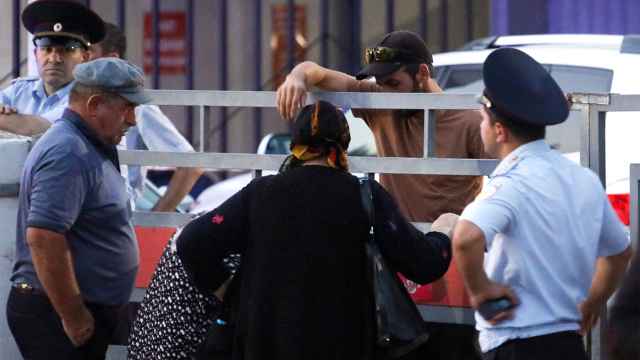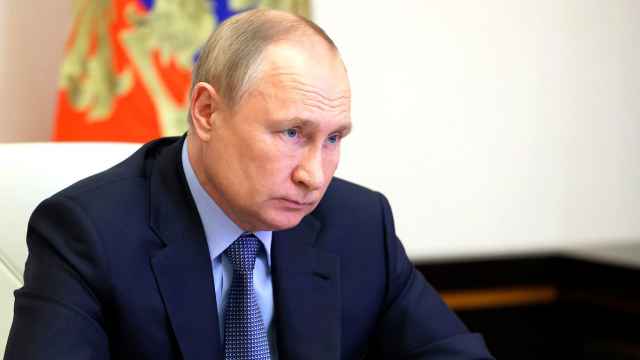President Vladimir Putin established a task force Tuesday to coordinate work between the government and pro-war military bloggers on Russia’s chaotic mobilization campaign.
The move fueled questions over possible plans to launch a second round of mobilization, despite Putin declaring its end in late October, as Moscow faces mounting losses in Ukraine. The Kremlin has denied that a second wave is being considered.
Under the task force, federal authorities and public associations will “interact on issues of preparation, mobilization, military registration and social and legal protection” of mobilized Russian soldiers and their families, Putin's decree reads.
Among the task force’s responsibilities are issuing recommendations on improving the military’s mobilization capacities, provisions and legal regulations; arranging accommodations for draftees; analysis of patriotic education aimed at young Russians; and public outreach.
The 31-member task force will be chaired by Andrei Turchak, the deputy chairman of Russia’s upper-house Federation Council.
Its members include state television war correspondents and pro-war bloggers who have gained a wide following since Russian troops invaded Ukraine in February.
The group will report to Putin every month and offer its recommendations to lawmakers, executive authorities and relevant organizations.
Russia’s Defense Ministry is ordered to provide “organizational and technical support” to the task force.
Russia’s “partial” mobilization, which called up 300,000 reservists, ignited a mass exodus of fighting-age Russian men and widespread reports of conscripts lacking adequate training and supplies.
A Message from The Moscow Times:
Dear readers,
We are facing unprecedented challenges. Russia's Prosecutor General's Office has designated The Moscow Times as an "undesirable" organization, criminalizing our work and putting our staff at risk of prosecution. This follows our earlier unjust labeling as a "foreign agent."
These actions are direct attempts to silence independent journalism in Russia. The authorities claim our work "discredits the decisions of the Russian leadership." We see things differently: we strive to provide accurate, unbiased reporting on Russia.
We, the journalists of The Moscow Times, refuse to be silenced. But to continue our work, we need your help.
Your support, no matter how small, makes a world of difference. If you can, please support us monthly starting from just $2. It's quick to set up, and every contribution makes a significant impact.
By supporting The Moscow Times, you're defending open, independent journalism in the face of repression. Thank you for standing with us.
Remind me later.


